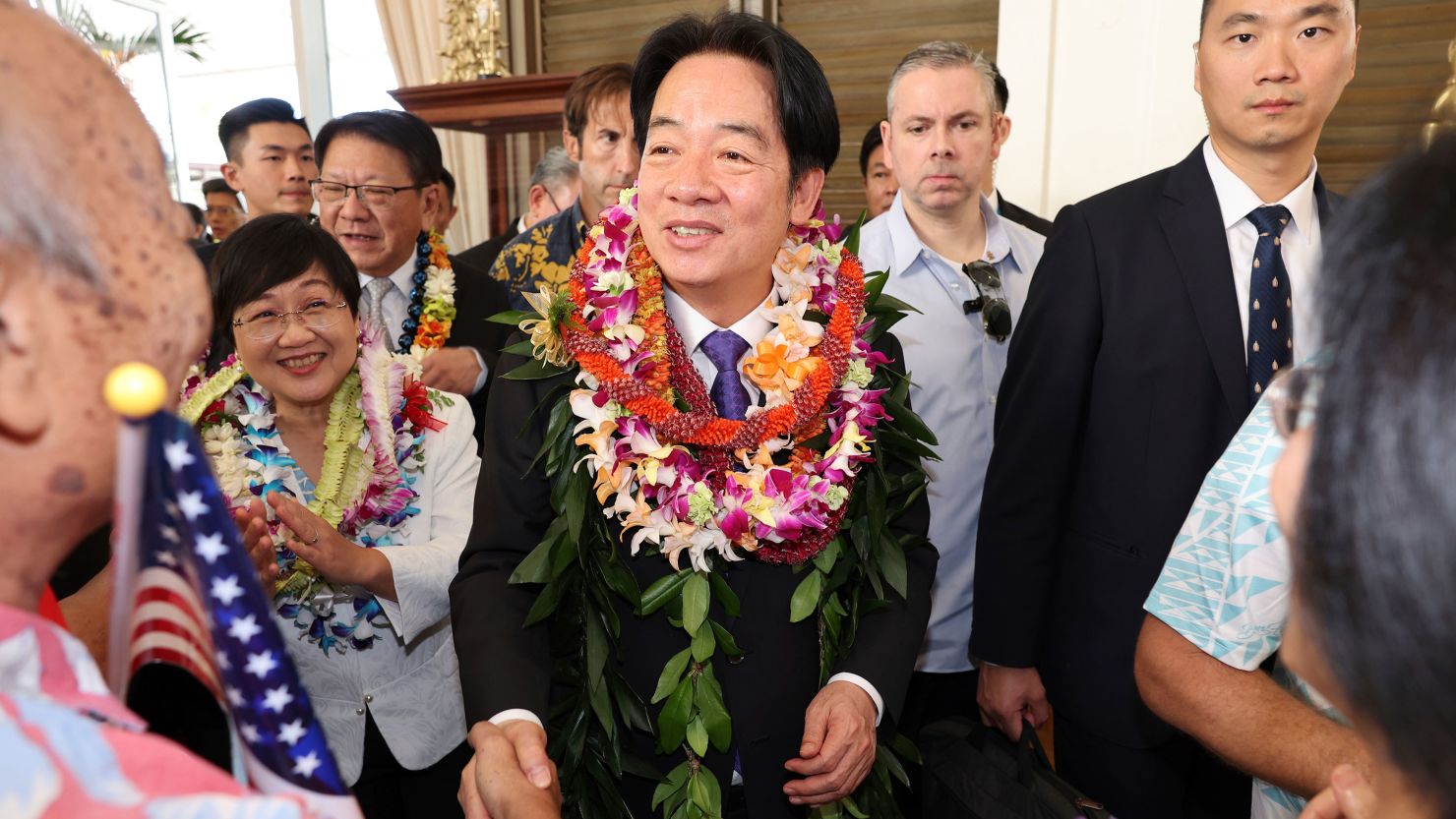Taiwan’s President Lai Ching-te may have had a modest stop in Hawaii, but the trip speaks volumes about Taiwan’s diplomatic resilience and its ongoing struggle in the face of increasing pressure from China. While the visit itself lacked major fanfare, its timing and context are anything but insignificant.
Lai, on his way to visit the Pacific islands of the Marshall Islands, Tuvalu, and Palau—three of Taiwan’s remaining diplomatic allies—used this stopover to highlight Taiwan’s determination to maintain strong international relationships, even as Beijing seeks to isolate the island. This visit also comes as Taiwan braces for political changes in the United States, with the potential for a more unpredictable relationship under a second Trump administration.
The two-day stay in Hawaii, along with a brief stop in Guam, marked Lai’s first official transit through U.S. territory since taking office in May. While the visit was billed as unofficial, the Chinese government wasted no time in expressing its displeasure, signaling its ongoing effort to deter any form of Taiwanese autonomy.
China’s Reaction: No Surprises There
As expected, Beijing responded sharply. A spokesperson for the Taiwan Affairs Office called the visit “provocative” and reiterated that Taiwan’s independence ambitions would never succeed. China’s Ministry of Foreign Affairs quickly issued a statement condemning the U.S. for allowing Lai’s “stopover,” accusing Washington of supporting Taiwan’s separatist agenda. In addition, Beijing promised to take retaliatory actions, including possible military drills near Taiwan, similar to previous responses to high-profile visits between Taiwan and the U.S.
This kind of pushback from China is nothing new, according to Kolas Yotaka, a former spokesperson for Lai and former President Tsai Ing-wen. “This is part of China’s broader strategy to suppress democratic institutions and global partnerships,” Kolas told CNN. “Taiwan is not just a target—they’re aiming at democracies worldwide.”
Taiwanese officials are bracing for Beijing’s usual tactics, such as military drills under names like “Joint Sword-2024C.” These exercises often serve as both a show of force and a propaganda tool, aimed at intimidating Taiwan and signaling China’s disapproval of any foreign engagements with the island.
US-Taiwan Relations in Flux
Lai’s Hawaii visit is also happening at a pivotal moment for U.S.-Taiwan relations, as Taiwan anticipates the transition into a second Trump administration. Although the Trump administration significantly increased arms sales to Taiwan during its first term, recent statements from Trump—suggesting Taiwan should “pay for its own defense”—raise questions about the future of U.S. support for Taiwan.
Unlike nations like Japan and South Korea, Taiwan does not benefit from a mutual defense treaty with the United States. However, Taiwan has been purchasing billions of dollars worth of U.S. weapons to bolster its defense.
Before leaving Taiwan, President Lai emphasized the importance of democratic values in international partnerships. He stressed that Taiwan is not just a beacon of democracy but a vital player in promoting global peace and stability. “We must continue expanding our cooperation with democratic allies around the world,” Lai said, highlighting Taiwan’s role as a frontline democracy facing authoritarian pressure.
Although some critics downplay the significance of Taiwan’s relationships with smaller Pacific nations, Kolas Yotaka disagrees. “The value of these relationships is critical. If we dismiss small nations, we risk being dismissed ourselves,” she said. For Taiwan, even smaller allies offer valuable diplomatic support and visibility on the global stage, helping to counter Beijing’s isolation efforts.
The Long Game: Taiwan’s Struggle for Recognition
President Lai’s stop in Hawaii, though understated, speaks to Taiwan’s ongoing battle for international recognition and sovereignty. With Beijing increasing its pressure, Taiwan’s future hinges on its ability to adapt, innovate, and rally democratic allies. Lai’s trip—particularly his quiet but meaningful stopover—was a clear signal of Taiwan’s determination to maintain its place in the world, even as it faces an uncertain geopolitical landscape.
“No single person can save Taiwan,” said Kolas. “Only a strong alliance of democracies can make the difference.”
As China ramps up its pressure, Taiwan’s future will depend not just on its internal resilience, but also on the strength of its international alliances. Lai’s journey across the Pacific is part of a much larger, long-term strategy in a high-stakes global game.
![]()

fxf8h6